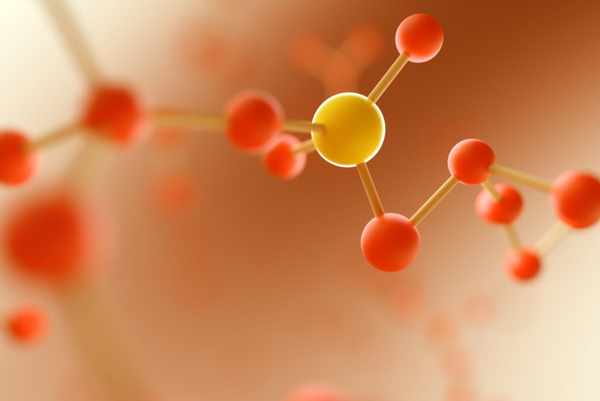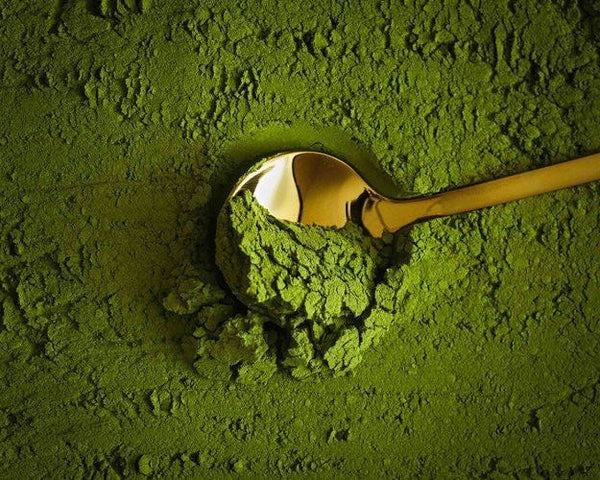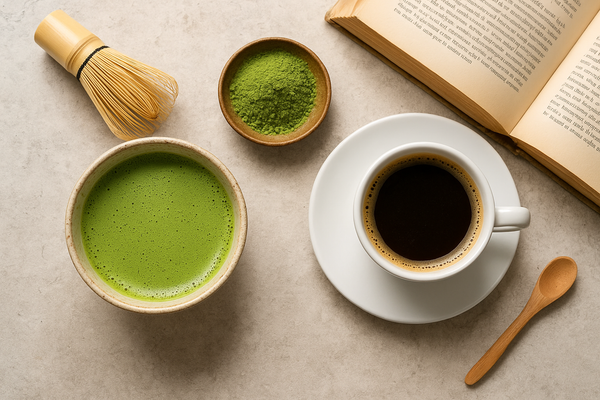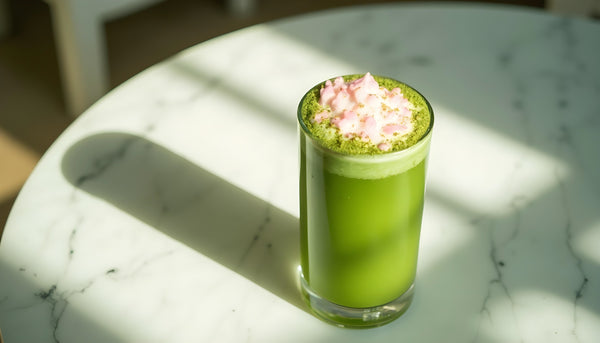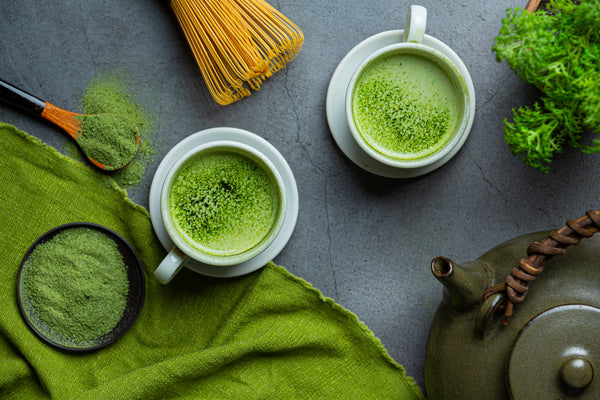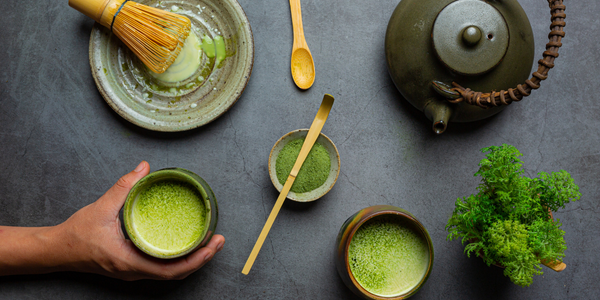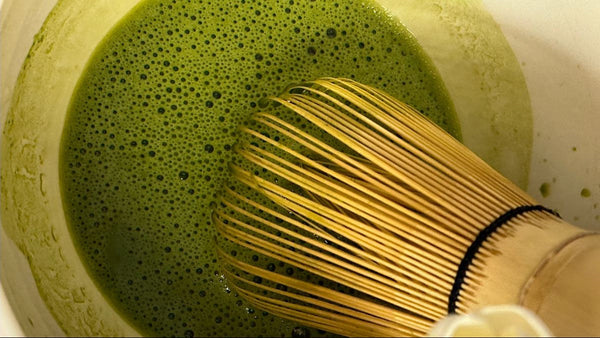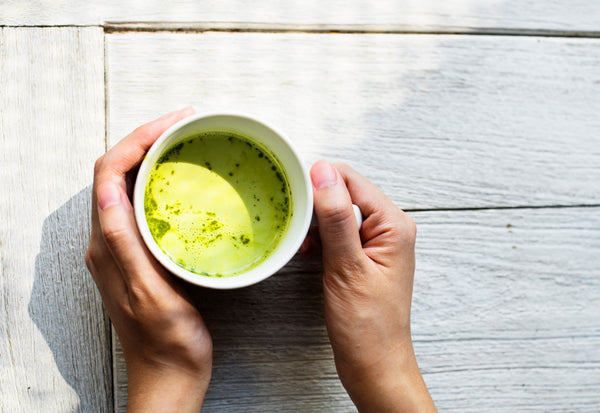The growing rage for matcha is testimony to the fact that the world of nutrition and clean eating is changing and how! It is definitely a wave of green revolution that has taken over the world in the 21st century. However, while the craze may be relatively new, the history of this potent green tea goes back between the 7th-10th century. Matcha tea has been an ancient healthy beverage that continues to be an integral part of the traditional Japanese tea ceremonies.
You can call Matcha a concentrated green tea which is made from special shade-grown tea leaves called tencha. The process retains the green color and earthy flavour of the leaves, which are shade-grown for 3-4 weeks before harvest. The stems and veins of the plant are removed and the leaves are finely ground to make a tea powder popularly known as the matcha powder.
But how did matcha green tea make it to the top list of super healthy foods and a top seller at cafes and restaurants, not to forget essential dietary supplements like Wellbeing Nutrition’s (WBN) Japanese Ceremonial Matcha Green Tea? Well, let's find out.
Matcha Craze: What’s The Reason?
Well there are plenty of health benefits associated with this earthy green concoction, which are hard to ignore.
Matcha is touted as a potent antioxidant, vitamin and amino acid-loaded tea, which picks up the mood of the drinker and sharpens their concentration. It has a combination of caffeine and l-theanine, which provides an energy boost much stronger than a regular green tea.
It is believed to have much higher amounts of polyphenols as compared to green teas and one study found that matcha contains up to 137 times more antioxidants than a low-grade variety of green tea and up to 3 times more antioxidants than other high-quality teas.
But can you get something better than the best? Certainly yes! Read on to know what!
Wellbeing Nutrition’s Japanese Ceremonial Grade Matcha Green Tea
If you are a matcha fan or an elementary level matcha tea drinker then we recommend that you add the Japanese Ceremonial Grade Matcha Green Tea fizzy tab to your daily routine. Wellbeing Nutrition’s Matcha Green Tea is made from organically grown, stone-ground Japanese tencha leaves. It is 100% pure and organic Japanese Ceremonial Grade Matcha Green Tea - the ultimate superfood to keep you energized all day in the form of a delicious water-soluble tab.
Used in traditional Japanese tea ceremonies, Ceremonial Grade Matcha is the highest quality grade of matcha. Sourced fresh from Uji, Japan, only the best, organically grown tencha green tea leaves are stone ground to produce our brilliant Japanese Ceremonial Grade Matcha Tea tabs. It has 137 times more antioxidants and is 10 times more powerful than regular green tea.
It is high in catechin epigallocatechin gallate or EGCG polyphenols and boosts energy and metabolism, supports healthy digestion, reduces inflammation, improves heart health, protects the skin, strengthens the immune system, reduces stress, and promotes longevity.
Making matcha tea with powder can get a little messy and tea bags can be clumsy for starters. But Wellbeing Nutrition’s Matcha Green Tea is easy to carry along and simple to prepare. Just add a tab to a cold glass of water and you are good to go. Drop, fizz, and drink up!
Matcha for Weight Watchers !
As per research, intake of catechin epigallocatechin gallate(EGCG), a plant-based polyphenol with powerful antioxidant properties and caffeine has been shown to enhance exercise-induced fat oxidation. The fact that matcha contains higher levels of both EGCG and caffeine, which together aid in weight management makes it a coveted health drink for weight loss.
One cup of matcha is extremely low in calories. You can drink several cups of this beverage without packing on the pounds, making it a great alternative to calorie-rich sugary sodas and fruit juices. It can also help keep you well-hydrated, which is helpful for weight loss.
Japanese Ceremonial Grade Matcha Tea water-soluble tablets make a delicious potion of goodness, which ensures you drop those unwanted kilos by naturally and effectively working on your digestion and metabolism systems.
Matcha As A Digestion Regulator
It helps maintain digestive balance and prevent gastrointestinal disorders due to its polyphenol content.
Matcha To Fasten Metabolism
Matcha speeds up metabolism and boosts fat burning for healthy weight management. Matcha Green Tea contains significantly higher levels of EGCG polyphenols than regular green tea, increasing its metabolism boosting and thermogenic effects in the body. Drinking our Organic Japanese Matcha Green Tea everyday helps reduce fat storage and ensure healthy weight loss.
Matcha For Dental Health Management
Studies have been conducted to show correlation between poor oral health and a wider waist circumference. It is observed that decaying teeth and other oral diseases lead to improper chewing patterns that impact the digestion of food adversely, which may lead to obesity and other metabolism-related disorders. Matcha Green Tea by Wellbeing Nutrition contains flavonoids that maintain healthy gums, fight tooth decay and limit the growth of oral bacteria ensuring that you eat your food slowly and properly, thereby improving one’s digestion and overall gut health.
To Sum It Up
Matcha has been widely trending among health and fitness enthusiasts globally. Its versatility makes it a top choice for many who like to experiment with new healthy recipes for diet variations. Also, one-of-a-kind scientific delivery innovations like Matcha Green tea tabs by Wellbeing Nutrition simply adds to the feasibility of having this health-boosting concoction on the go. It also packs a punch by providing all the benefits of the highest grade of Matcha in a fun manner. Now wouldn’t you want to give this product a try?
So what are you waiting for? Get set, go and grab your tube of green goodness to feel super fit from the inside and look super fab from the outside!
References
- Willems MET, Şahin MA, Cook MD. Matcha Green Tea Drinks Enhance Fat Oxidation During Brisk Walking in Females. Int J Sport Nutr Exerc Metab. 2018 Sep 1;28(5):536-541. doi: 10.1123/ijsnem.2017-0237. Epub 2018 Jun 19. PMID: 29345213
- Sonoda C, Fukuda H, Kitamura M, Hayashida H, Kawashita Y, Furugen R, Koyama Z, Saito T: Associations among Obesity, Eating Speed, and Oral Health. Obes Facts 2018;11:165-175. doi: 10.1159/000488533 https://www.ncbi.nlm.nih.gov/pmc/articles/PMC7231151/
- Jakubczyk K, Kochman J, Kwiatkowska A, et al. Antioxidant Properties and Nutritional Composition of Matcha Green Tea. Foods. 2020;9(4):483. Published 2020 Apr 12. doi:10.3390/foods9040483













